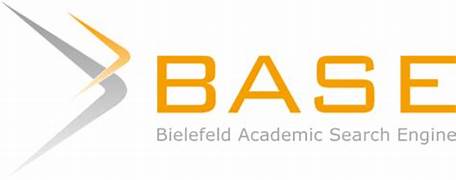Scoping Review: Antenatal Knowledge on Breastfeeding Preparation Among Pregnant Women
DOI:
https://doi.org/10.64141/pmhs.v2i1.41Keywords:
Knowledge, Attitude, Pregnant Women, BreastfeedingAbstract
Pregnant women play a vital role within the community in assessing the factors that influence future breastfeeding success. Breast milk is the most optimal source of nutrition for infants and provides significant health benefits for both mother and child. According to the World Health Organization (WHO), exclusive breastfeeding is recommended for the first six months of life, followed by the introduction of complementary foods between five and seven months. However, breastfeeding practices often do not align with these recommendations. A mother's success in exclusive breastfeeding is strongly influenced by family support, which can significantly enhance her confidence. Objective: This study aims to analyze breastfeeding patterns among primiparous mothers in order to improve the forms of support provided to them. Methods: This scoping review was conducted using the framework developed by Arksey and O'Malley. Results: Based on five selected articles, two used cross-sectional designs, one was a descriptive study, one used qualitative data, and one employed Chi-square analysis. The findings revealed that comprehensive prenatal knowledge significantly improves maternal self-efficacy in the breastfeeding process. Conclusion: Pregnant women's knowledge and attitudes toward breastfeeding remain insufficient, as does their intention to breastfeed optimally. These findings highlight the need for culturally tailored interventions to improve knowledge, attitudes, and intentions regarding breastfeeding, thereby supporting better future breastfeeding practices for their children.
References
Abebe et al. (2022). Levels and Determinants of Prenatal Breastfeeding Knowledge, Attitude, and Intention Among Pregnant Women: A Cross-Sectional Study in Northwest Ethiopia. Frontiers in Public Health. https://doi.org/10.3389/fpubh.2022.920355
Abdulahi et al. (2021). Determinants of Knowledge and Attitude towards Breastfeeding in Rural Pregnant Women Using Validated Instruments in Ethiopia. International Journal of Environmental Research and Public Health, 18(15), 7930. https://doi.org/10.3390/ijerph18157930
Adriati, F., & Hidayati, R. D. (2025). The Relationship Between Mother’s Level of Knowledge and Attitude Towards Exclusive Breastfeeding. Jurnal Midpro: Karakteristik, Analisis & Model, 16(2), 203–208. https://doi.org/10.30736/md.v16i2.785
Afroz, H., Mondal, S., Khatun, T., Saleh, F., & Hussain, Md. A. (2024). Breastfeeding knowledge, attitude, and practices among mothers at EPI centers in the northern part of Dhaka city. NAJFNR. https://doi.org/10.51745/najfnr.8.18.96-105
Arksey, H., & O’Malley, L. (2005). Scoping studies: Towards a methodological Framework. International Journal of Social Research Methodology, 8(1), 19–32. https://doi.org/10.1080/1364557032000119616
Bautista-Justo, L. C., Hernández-Morán, O. E., Gutiérrez-Gabriel, I., Bonilla-Becerri, A. S., Serrano-Campos, F. de A., & Saldaña-Barrientos, S. (2024). Importance of an educational intervention: Knowledge, attitudes and practices on breastfeeding. Revista Médica Del Instituto Mexicano Del Seguro Social, 62(5), 1–7. https://doi.org/10.5281/zenodo.12668009
Eldomiaty, M., Alanazi, M., Albashier, S., Alahmadi, W., AlRashidi, R., Al-Mutairi, S. H., & Shahat, K. (2025). Breastfeeding problems experienced by lactating mothers in Almadinah Almonawarah province and the probable maternal and fetal risk factors. International Journal of Medicine in Developing Countries, 1. https://doi.org/10.24911/ijmdc.51-1735518431
Indrasari, N., Mugiati, M., Nurlaila, N., Aliyanto, W., & Trianingsih, I. (2024). Analysis of Demographic Factors Affecting Exclusive Breastfeeding Success among Breastfeeding Mothers. Jurnal Kesehatan, 15(3), 362–369. https://doi.org/10.26630/jk.v15i3.4632
Jin, X., Lai, C. T., Perrella, S. L., McEachran, J., Gridneva, Z., & Geddes, D. T. (2024). Maternal Breast Growth and Body Mass Index Are Associated with Low Milk Production in Women. Nutrients, 16. https://doi.org/10.3390/nu16172854
Kartini & Hikmah. (2024). Knowledge Of Pregnant Women In The Third Trimester About The Initiation Of Early Breastfeeding (IEBF).
Lanyo et al. (2024). Effect of Group Antenatal Care on Breastfeeding Knowledge and Practices Among Pregnant Women in Ghana: Findings from a Cluster-Randomized Controlled Trial. International Journal of Environmental Research and Public Health, 21(12), 1587. https://doi.org/10.3390/ijerph21121587
Morrison, A. H., Gentry, R., & Anderson, J. (2019). Mothers’ Reasons for Early Breastfeeding Cessation. MCN: The American Journal of Maternal/Child Nursing, 44(6), 325–330. https://doi.org/10.1097/NMC.0000000000000566
Nurhayati, E., & Fikawati, S. (2020). Counseling of exclusive breastfeeding during antenatal care (ANC) and perceptions of insufficient milk supply. Indonesian Journal of Nutrition and Dietetics, 7(2), 65. https://doi.org/10.21927/IJND.2019.7(2).65-73
Oberfichtner, B., Lorenz, L., Abele, H., & Grischke, E. M. (2023). Breastfeeding in primiparous women – expectations and reality: a prospective questionnaire survey. BMC Pregnancy and Childbirth, 23, Article 103. https://doi.org/10.1186/s12884-023-05971-1
Srivastava, A., Mahmood, S. E., Srivastava, P., Shati, A. A., & Riaz, F. (2024). Breastfeeding knowledge, practices, and their determinants among recently delivered mothers: A cross-sectional study. Journal of Family Medicine and Primary Care, 13(10), 4181–4187. https://doi.org/10.4103/jfmpc.jfmpc_1359_23
Downloads
Published
How to Cite
Issue
License
Copyright (c) 2025 Desiy Fitriani, Siti Rukmana

This work is licensed under a Creative Commons Attribution-ShareAlike 4.0 International License.
Licence Term
Licence

Copyright @2024 Papua Medicine and Health Science. This is an open-access article distributed under the terms of the licensed under a Creative Commons Attribution-ShareAlike 4.0 International License.














